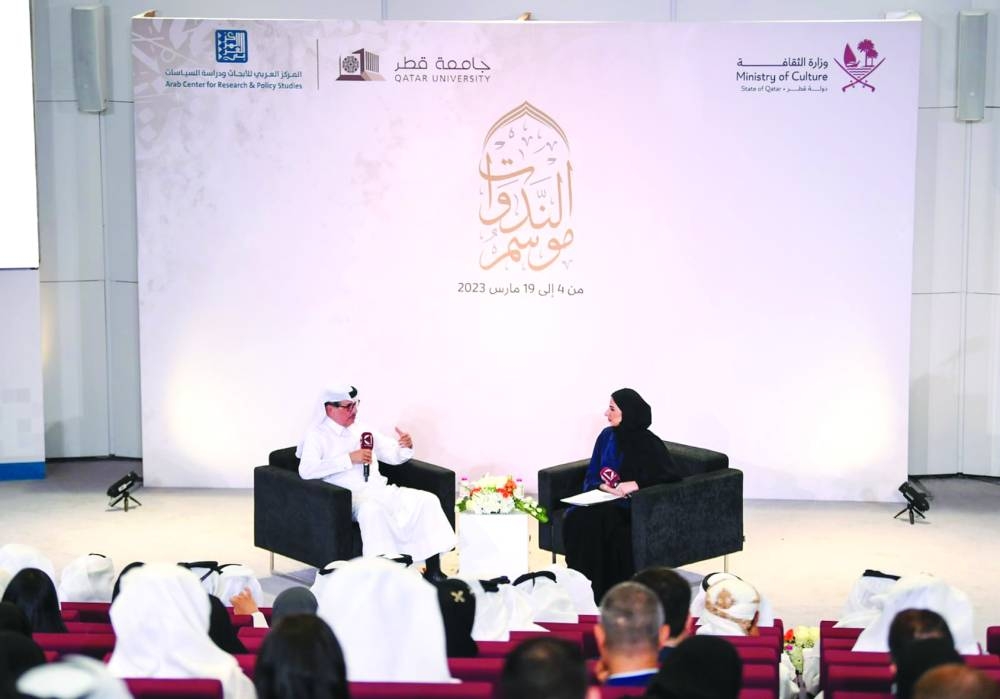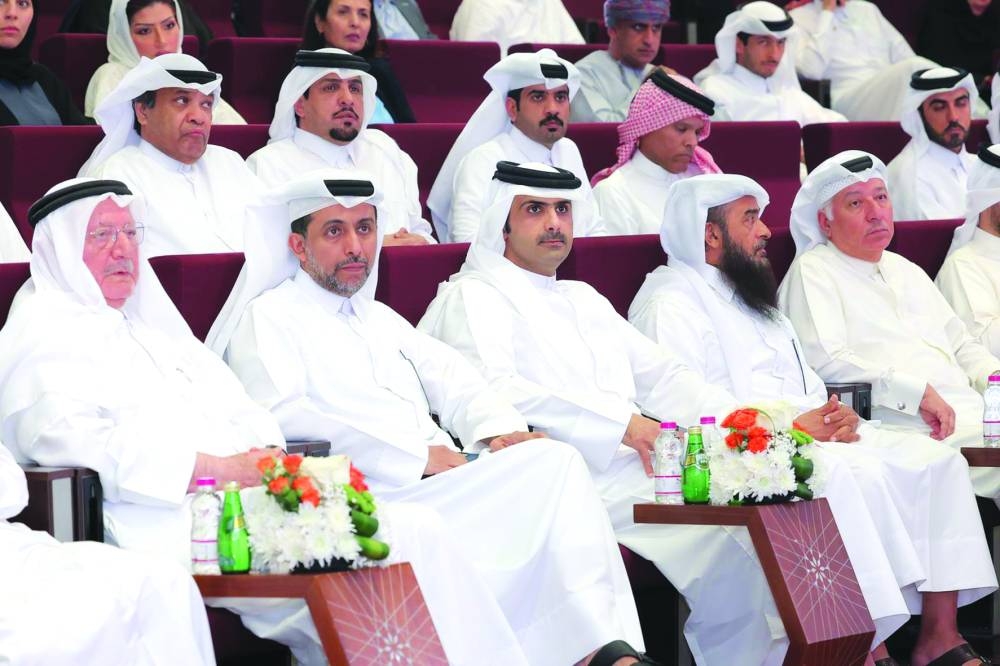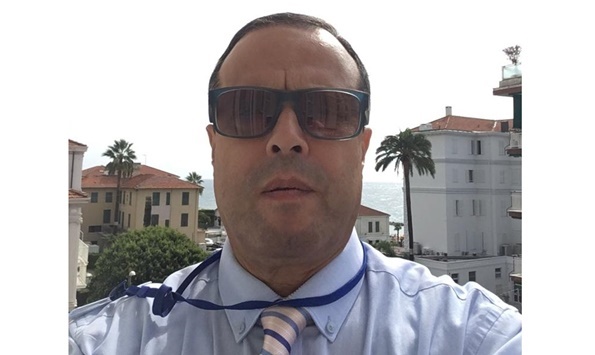In the presence of HE the Minister of Culture Sheikh Abdulrahman bin Hamad al-Thani, the activities of the 'Seminar Series 2023' continued on Wednesday, at the Doha Institute for Research and Policy Studies with HE the Minister of State and Qatar National Library president Dr Hamad bin Abdulaziz al-Kawari, speaking on 'The Legacy of the World Cup Culture'.
Dr al-Kawari said: “I admit I did not have great ties with football, but the World Cup in Qatar was a turning point for me. I realised the importance of football not only as a mere sport, but that millions of people in the world are associated with it, taking its cultural and social dimensions beyond sports.
"What happened to me in terms of watching football is a common perception with many intellectuals in the world. I found this in the book published by the 'New Arab' Foundation under the title 'The Magic of Football: Writers from East and West' who talk about their passion for the most joyful game. "While I commend this work edited by Professor Maan al-Bayari, I value these cultural initiatives that enrich the Arab library with an interesting, useful and exceptional book. I appreciate the Arab Center for Research and Policy Studies’ keenness to enhance awareness and its approach of the cultural phenomena experienced by the Arab world. I was attracted by what the Romanian writer Ion Diaconescu described football: 'It is that distinctive tool that passes from soul to soul, because we need a rhythm of life, a new behaviour, a new humanity. Football is certainly not a saviour, but it makes the earth a better place.' This means that football is a means of rapprochement between people, due to the cultural values it contains.
"The World Cup was linked to cultural dimensions, which was indicated by His Highness the Amir Sheikh Tamim bin Hamad al-Thani, who said: “We will not prevent anyone from coming to our country and enjoying football, and we respect all the cultures of the world, and we expect everyone to respect our culture .”
"The successful staging of the World Cup proved that Qatar will not abandon its cultural values. Qatar has presented its culture and values throughout the World Cup, allowing visitors from different cultures to learn about our religion, culture and social values, and to affirm the principle of mutual respect between cultures.
“My goal is to implement what I have long called for, which is the necessity of activating the gains of the success of the World Cup on the cultural level, so that the joy of success does not prevent the continuation of work on cultivating this tree that needs care in order for its branches to leaf and bring forth its fruits continuously.
"The World Cup stirred the 'collective memory' of the peoples, as the Arabs and Muslims specifically restored the glories of the Arab-Islamic civilisation when we were leading the way of civilisation.
“The World Cup contained cultural expressions and messages that gave the tournament an exceptional character, and emphasised the value of soft power. This again confirms the effectiveness of cultural diplomacy, of which sports diplomacy is a part. The World Cup was a real test of the feasibility of this diplomacy, which today requires more work in order to preserve its gains and continue to diversify its tools.”
“Qatar, through the World Cup, presented a lesson in the concept of cultural exchange, which is respect for cultural specificities and not acquiescence in imposing cultural expressions that contradict the hierarchy of Arab-Islamic values.
"These values, which were an essential part of the cultural expressions of the World Cup. The opening ceremony proved to be the 'compass' of all its activities. This compass was based on the Qur'anic concept of 'friendship' through the verse that brought together the young Qatari Ghanim al-Muftah and the American actor Morgan Freeman."

HE Dr Hamad bin Abdulaziz al-Kuwari at the seminar yesterday.

HE the Minister of Culture Sheikh Abdulrahman bin Hamad al-Thani and other dignitaries at the seminar yesterday.

